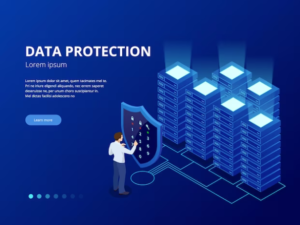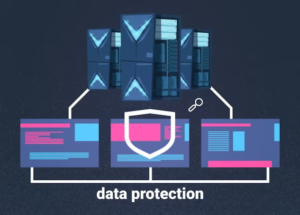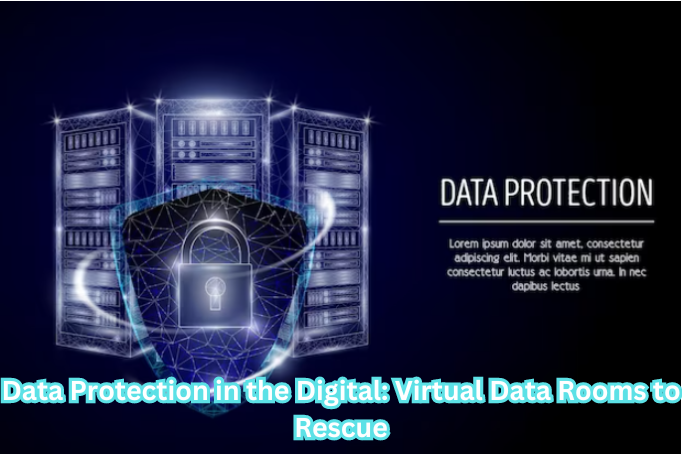Securing and protecting sensitive data is of the utmost importance in today’s fast-paced digital world, where information is the new money. Strong data protection procedures are more important than ever since companies rely more on digital platforms to run their operations. Virtual data rooms (VDRs) are one prominent option for this situation. In this post, we’ll look at the importance of virtual data room data protection and how these safe platforms are crucial for keeping sensitive information secure. Click here
Gaining Familiarity with VDRs
A better understanding of virtual data rooms is necessary before delving into the details of data protection.
Digital Lockers: What Are They?
In the context of mergers, acquisitions, and financial transactions, a secure online repository known as a virtual data room (VDR) is ideal for storing and distributing sensitive information. Authorized users can access, examine, and collaborate on confidential data using these virtual spaces in a restricted environment.

The Increasing Criticality of Data Security
Due to the growing sophistication of cyber threats and data breaches, strong data protection procedures are crucial for organizations today. Discover the reasons why safeguarding data is of the utmost importance.
The State of Cybersecurity
Because cyberspace is dynamic, thieves continuously develop new methods to exploit security holes. The dangers are varied and constant, ranging from phishing tactics to ransomware assaults. To maintain a competitive edge, businesses must develop solutions to protect their digital assets.
Adherence to Regulations
Data protection is subject to increasingly strict regulations. Firms must maintain strict data privacy standards due to legislation like the General Data Privacy Regulation (GDPR) and the California Consumer Privacy Act (CCPA). Serious financial fines and harm to the company’s image may follow from noncompliance.
The Role of Virtual Data Rooms in Ensuring Data Security
Now that we know what to expect, let’s look at how virtual data rooms become data protection heroes.
Data Encryption: A Stronghold
Encryption is one of the main characteristics that make VDRs a fortress for data protection. Encryption is a security measure that ensures only authorized individuals with the correct encryption key may access and interpret data kept in virtual data rooms. Even if unauthorized persons get their hands on the data, it will still be impossible to understand, thanks to this additional safeguard.
Precise Controls for Access
Administrators can exert fine-grained control over the access to specific information using virtual data rooms. Businesses may ensure that only authorized people can see and change important documents by setting precise permissions and limits. Internal breaches and illegal data disclosures are reduced as a result.
Watermarking Documents Securely
Secure document watermarking is a common tool VDRs use to prevent information leakage. Businesses may now pinpoint the source of stolen information by putting modest yet identifiable watermarks on papers. Potential data breaches are discouraged, and an additional level of accountability is introduced.
The Importance of People in Data Security
In the pursuit of complete data protection, technological solutions are essential, but we must not overlook the human factor.
Educating and Training Staff
Accidental disclosure of sensitive information or falling prey to phishing scams are two examples of the many human errors that lead to data breaches. Several virtual data room providers give training programs to foster a more cautious workforce that teaches staff about cybersecurity best practices.
Monitoring and Audits regularly
Any data protection policy worth its salt would include frequent audits and continuous monitoring. Administrators of virtual data rooms may monitor user actions, spot suspicious trends, and respond swiftly to security risks.
Embracing a Future of Safety
Safe data management procedures are becoming more important as we enter the digital world. Let’s examine how virtual data rooms may be easily integrated into company processes to improve data safety.
Evaluating Company Requirements
Businesses should carefully evaluate data protection requirements before choosing a virtual data room supplier. An efficient and customized solution is possible when thoroughly understanding the industry’s unique regulations and compliance criteria.

How to Pick a Reliable Virtual Data Room Service
Regarding virtual data rooms, not all suppliers are the same. When selecting a provider, businesses should look for one with a history of successful data protection initiatives, strong encryption mechanisms, and an intuitive UI. People making decisions might benefit from reading reviews and asking for advice.
Combination with Current Infrastructure
Virtual data room solutions easily connected with current systems are ideal for companies looking to switch with little disruption. This makes the adoption process more efficient and reduces the likelihood of workflow disruptions.
In summary,
To sum up, the advent of the digital age has presented new possibilities and difficulties. Virtual data rooms stand out as a symbol of safety in the digital world, where the importance of data is growing, and strong security measures are needed. Businesses may securely traverse the digital arena while protecting their most precious asset—information—through data encryption, stringent access restrictions, and promoting a culture of awareness. In the ever-evolving landscape of technology, virtual data rooms are quickly becoming an essential tool for achieving the highest data protection standards.
FAQ
Ensuring the safety of sensitive information is not just a priority but a necessity in the ever-expanding digital cosmos, where its sharing is essential to corporate operations. Virtual Data Rooms (VDRs) have become powerful partners in the fight against data breaches as enterprises face the difficulties of protecting their data. To help you understand how these safe platforms are changing the game for exchanging private information, we’ve assembled this FAQ-style piece to take the mystery out of virtual data room data protection by addressing your most important questions.
How secure is a Virtual Data Room (VDR)?
The strong security features of virtual data rooms (VDRs) are well-known. These systems use sophisticated encryption methods to secure user information, which converts data into code only authorized users can understand. Secure document watermarking, comprehensive access restrictions, and routine monitoring further increase VDRs’ overall security, making them an ideal choice for safely transferring sensitive information.
What is the meaning of VDR?
Your question has been answered: “VDR” refers to a virtual data room. You may save, share, and collaborate on sensitive information in our safe online repository. Virtual document repositories (VDRs) offer a regulated virtual space where authorized users may access and handle confidential information with enhanced security measures; they are widely utilized in important corporate procedures such as financial transactions, mergers, and acquisitions.
What is VDR security?
The answer is that Virtual Data Rooms use a full suite of security protocols to safeguard all of the sensitive information that goes into them. This includes secure document watermarking, complex access restrictions, sophisticated encryption techniques, and constant monitoring. Taken as a whole, these security measures provide an impregnable barrier against intrusion and the possible compromise of sensitive data.
What are the disadvantages of Virtual Data Rooms?
Although virtual data rooms provide unrivaled security and convenience, it is important to be aware of the possible downsides. Some potential drawbacks include a steep learning curve for users unfamiliar with the platform, infrequent technical difficulties, and a high installation cost—which can be particularly problematic for smaller firms. Despite these concerns, companies engaging in sensitive transactions typically find that the advantages of increased security and simplified cooperation exceed these disadvantages.
Are virtual machines 100% safe?
The consensus is that virtual computers are safe, but unfortunately, no system is completely bug-free. Several things contribute to security, such as correct setup, frequent upgrades, and following best practices. The security of virtual computers in users’ surroundings may be greatly improved with strong security mechanisms like firewalls, encryption, and frequent audits.
Is a Virtual Network Secure?
The answer is that the steps taken by the company determine the level of security for the virtual network. Strong encryption, access controls, and monitoring techniques can be used to create virtual networks such that they are safe. But if security measures aren’t followed carefully, vulnerabilities might appear, just as in any network. To keep a virtual network safe, conducting assessments, installing updates, and following security rules is vital.

